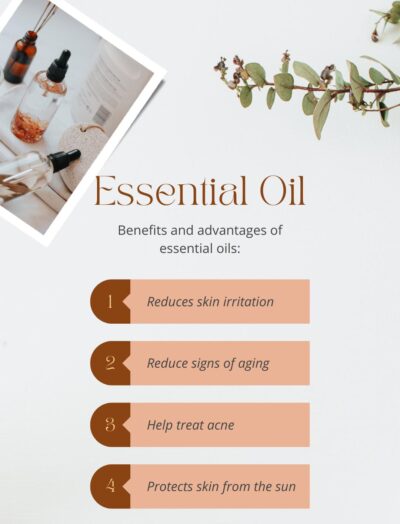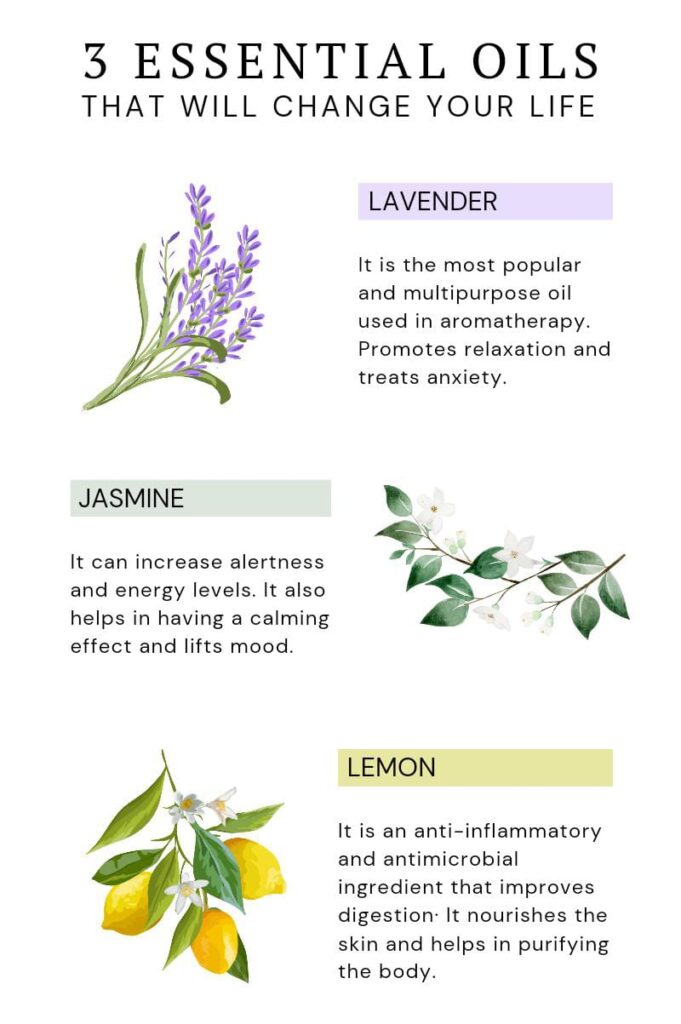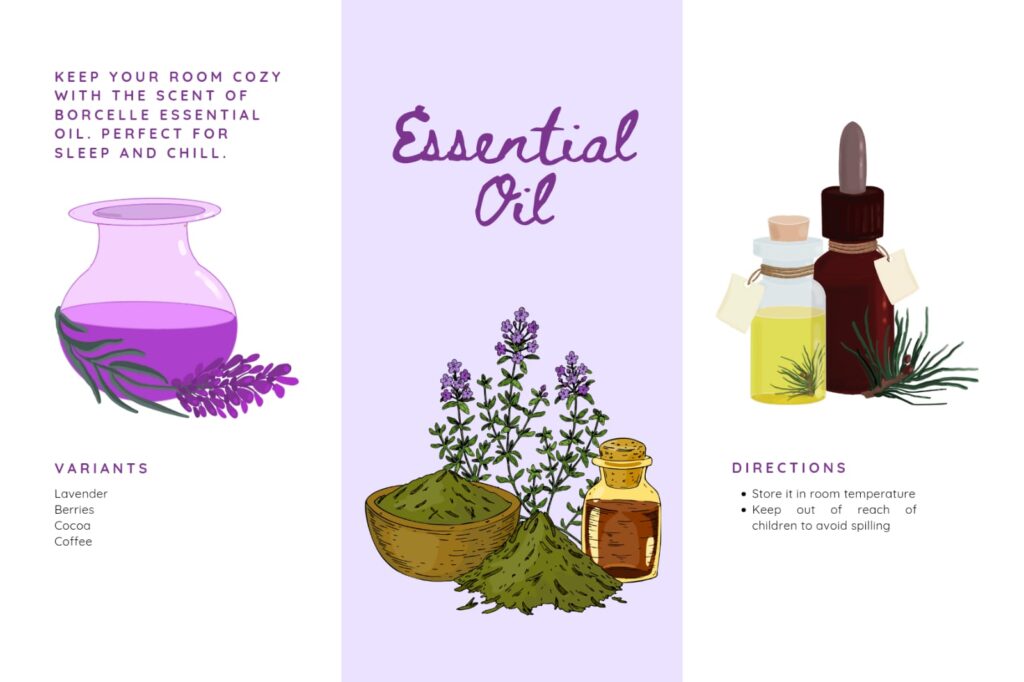How do essential oils play a role in healthcare?
Welcome to our insightful article, “Harnessing the Power of Essential Oils: Enhancing Healthcare Naturally.” Essential oils have played a pivotal role in healthcare for centuries, dating back to ancient civilizations like Egypt, where they were revered for their healing properties. Derived from various plant parts through methods such as steam distillation and cold pressing, essential oils contain potent aromatic compounds that hold therapeutic benefits. From promoting relaxation to boosting immunity, these natural extracts have stood the test of time in supporting overall well-being. Join us as we explore the historical significance and science behind essential oils, unlocking their potential to enhance healthcare naturally.

Exploring the Essence: Understanding Essential Oils
Essential oils are concentrated liquids derived from various parts of plants, such as leaves, flowers, bark, and roots. They are often referred to as the “essence” of the plant due to their characteristic fragrance and potent therapeutic properties.
Natural Origins:
These aromatic oils are extracted from plants using specialized methods, preserving their natural essence and efficacy. From lavender fields to citrus groves, essential oils are sourced from botanicals found across the globe, each offering unique aromatic profiles and health benefits.
Extraction Techniques:
The process of extracting essential oils involves careful handling of plant material to retain its aromatic compounds. Common extraction methods include steam distillation, cold pressing, and solvent extraction, each ensuring the purity and potency of the final product.
Unearthing the Past: Essential Oils Through the Ages
Historical Use Across Cultures:
Essential oils have left an indelible mark on civilizations throughout history, with evidence of their use dating back thousands of years. From ancient Egypt to China, Greece, and beyond, essential oils were revered for their medicinal, cosmetic, and spiritual properties. They were often integrated into religious ceremonies, daily rituals, and traditional healing practices, showcasing their widespread significance across diverse cultures.
Traditional Remedies and Practices:
In ancient times, essential oils were prized for their healing prowess. Egyptians utilized aromatic oils in embalming processes and religious ceremonies, while Greek physicians like Hippocrates prescribed them for various ailments. In traditional Chinese medicine, essential oils were used to balance energy pathways and promote overall well-being. Similarly, Indigenous cultures around the world incorporated plant-based remedies and aromatic oils into their healing traditions, passing down knowledge from generation to generation.
Unlocking Nature’s Healing Powers: Exploring the Therapeutic Benefits of Essential Oils
Diverse Therapeutic Benefits:
Essential oils offer a wide array of therapeutic benefits, ranging from antimicrobial and anti-inflammatory properties to relaxation and stress relief. These natural remedies have been used for centuries to alleviate various ailments and promote overall well-being.
Specific Examples and Health-Promoting Effects:
Lavender essential oil, for instance, is known for its calming effects, making it an excellent choice for reducing stress and improving sleep quality. Tea tree oil boasts powerful antimicrobial properties, making it effective against bacteria, viruses, and fungi. Peppermint oil is revered for its invigorating scent and ability to relieve headaches, ease digestive discomfort, and promote mental clarity.

Nurturing the Mind: Essential Oils for Mental Health and Well-being
Promoting Mental Health:
Essential oils play a crucial role in nurturing mental health and emotional well-being. Their aromatic compounds have a direct impact on the brain’s limbic system, which controls emotions, memories, and mood.
Aromatherapy for Stress Relief:
Aromatherapy, the practice of using essential oils for therapeutic purposes, is highly effective in relieving stress and promoting relaxation. Oils like lavender, chamomile, and bergamot are renowned for their calming properties, helping to soothe the mind and alleviate tension.
Anxiety Management:
For those struggling with anxiety, essential oils offer natural relief. Scents like rose, ylang-ylang, and frankincense can help ease anxiety symptoms, providing a sense of tranquility and balance during stressful situations.
Enhancing Mood:
Essential oils are powerful mood enhancers, lifting spirits and promoting positivity. Citrus oils such as lemon, orange, and grapefruit are known for their uplifting effects, energizing the mind and boosting mood.
Boosting Wellness: How Essential Oils Support Physical Health
Exploring the Healing Potential:
Essential oils offer a natural approach to supporting physical health, addressing a range of concerns from pain relief and immune system support to skincare.
Pain Relief:
Certain essential oils, such as peppermint and eucalyptus, possess analgesic properties that can help alleviate pain and discomfort. They can be used topically or inhaled to provide relief from headaches, muscle aches, and joint pain.
Immune System Support:
Essential oils like tea tree, oregano, and lemon have antimicrobial properties that can help strengthen the immune system and protect against infections. Diffusing these oils or using them in cleaning products can help create a healthier environment and reduce the risk of illness.
Skincare:
Many essential oils have beneficial effects on the skin, promoting hydration, reducing inflammation, and combating acne. Examples include lavender, chamomile, and rosemary, which can be diluted in carrier oils and applied topically to improve skin health.
Conditions that Benefit from Essential Oils:
Conditions such as arthritis, colds and flu, and eczema are just a few examples of ailments that may benefit from essential oil treatments. By incorporating these natural remedies into your wellness routine, you can support your physical health and enhance overall well-being.
Unlocking the Potential: Practical Applications of Essential Oils
Safe and Effective Usage Tips:
When using essential oils at home, it’s important to prioritize safety and efficacy. Always start with high-quality oils from reputable sources, and perform a patch test to check for any allergic reactions before widespread use.
Guidance on Dilution:
Essential oils are highly concentrated and should be diluted before application to the skin to prevent irritation or sensitization. A common dilution ratio is 1-2 drops of essential oil per teaspoon of carrier oil, such as jojoba or coconut oil.
Topical Application Techniques:
For topical application, gently massage the diluted essential oil into the skin using circular motions. Focus on pulse points, temples, and the soles of the feet for maximum absorption and effectiveness.
Inhalation and Diffusion Methods:
Inhalation is another effective way to enjoy the benefits of essential oils. Add a few drops of oil to a bowl of steaming water or use a diffuser to disperse the aroma throughout your home. This can help improve mood, reduce stress, and alleviate respiratory symptoms.
By following these simple guidelines, you can safely and effectively incorporate essential oils into your daily routine to support health and well-being.
Bridging the Gap: Integrating Essential Oils with Conventional Medicine
Complementing Conventional Treatments:
Essential oils can serve as valuable complements to conventional medical treatments, enhancing overall wellness and supporting the body’s natural healing processes. For example, they may help alleviate symptoms such as pain, nausea, and anxiety, providing patients with additional relief and comfort.
Importance of Professional Guidance:
While essential oils offer promising benefits, it’s essential to consult healthcare professionals for personalized advice and guidance, especially when incorporating them into existing treatment plans. Healthcare providers can offer valuable insights into potential interactions, dosage recommendations, and safety precautions to ensure optimal outcomes.
By fostering collaboration between essential oil therapies and conventional medicine, individuals can access a more holistic approach to healthcare that addresses both physical and emotional well-being.
Navigating Safely: Essential Safety Considerations for Using Essential Oils
Prioritizing Dilution and Allergy Testing:
Safety is paramount when using essential oils. Always dilute essential oils properly before applying them to the skin to prevent irritation or sensitization. Additionally, perform a patch test on a small area of skin to check for any allergic reactions before widespread use.
Awareness of Sensitivity and Contraindications:
Certain individuals, such as pregnant women, nursing mothers, and young children, may be more sensitive to the effects of essential oils. It’s crucial to be aware of any contraindications and potential risks associated with specific oils, as well as consulting healthcare professionals for personalized advice.
Avoiding Contact with Sensitive Areas:
Exercise caution when applying essential oils to sensitive areas of the body, such as the eyes, mucous membranes, and broken or damaged skin. Direct contact with these areas can lead to irritation or discomfort.
By adhering to these safety precautions and guidelines, individuals can enjoy the benefits of essential oils while minimizing potential risks and ensuring a positive experience.

Embracing the Journey: Conclusion and Final Thoughts on Essential Oils
Reflecting on Essential Oils’ Impact:
Throughout this guide, we’ve uncovered the remarkable role that essential oils play in healthcare. From their ancient roots to modern applications, these natural remedies offer a holistic approach to wellness, addressing both physical and emotional needs.
Emphasizing Informed and Safe Usage:
As you embark on your journey with essential oils, it’s crucial to prioritize safety and informed usage. Remember to dilute oils properly, perform allergy tests, and seek guidance from healthcare professionals, especially if you’re pregnant, nursing, or have underlying health conditions.
Exploring the Potential Benefits:
We encourage you to explore the vast potential benefits of essential oils, whether you’re seeking relief from pain, stress, or skin concerns. By incorporating these natural remedies into your daily routine, you can unlock the power of nature to support your overall well-being.
As you continue your exploration of essential oils, remember to approach with curiosity, caution, and an open mind. With proper knowledge and safe usage practices, essential oils can be valuable tools on your journey to health and wellness.
